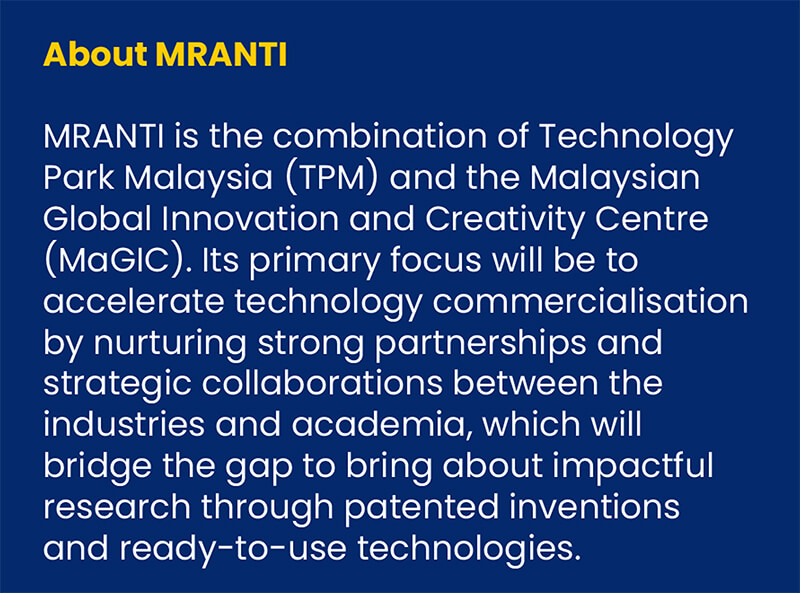Dzuleira: Talent & Digital Leadership Vital for Malaysia to Compete Globally
Malaysia can enhance productivity, foster innovation and improve living conditions by utilising digital transformation across the country

The COVID-19 pandemic has been a significant catalyst for digital transformation around the world. Economies worldwide have been forced to accelerate their adoption of digital technologies to survive. The Malaysian government has invested in digital infrastructure for years, but the pandemic has forced it to speed up its plans.
As the world becomes increasingly digital, countries are scrambling to catch up and ensure that they are prepared for the future. However, Malaysia needs to do more than just digitising its existing infrastructure to compete globally. For that, we need highly-skilled technical talents.
According to the recent AlphaBeta research, the digital transformation can generate up to RM257.2 billion, with a significant 72% or RM184 billion driven by technologies that can help businesses and workers mitigate the effects of Covid-19 in annual economic value in Malaysia by 2030.
MRANTI CEO Dzuleira Abu Bakar says: “In this regard, COVID-19 has put us on overdrive. Over the past year, virtual learning has been a vital component for all levels of education. In addition, telemedicine and robotics came into prominence to deliver care remotely, ensuring the safety of patients and healthcare practitioners. Lockdowns also forced congregations of businesses to go online for the first time.”
Low on skills and experience
There is no shortage of talented young people in Malaysia with the potential to become world-class tech innovators. However, they often lack the skills and experience needed to realise their full potential. That’s why it’s so important to invest in the development of local technical talent.
Dzuleira says: “A recent World Economic Forum (WEF) report reveals that newer, skilled and emerging professions are expected to increase from about 8% to more than 13% over the next four years.
“We need to identify and back talents and innovators with the right support structures, not just from a funding perspective but also a capacity-building one. We need to inspire new graduates and upskill the existing workforce to take up the STI (Science, Technology & Innovation) challenge, ensuring we have enough talents in the field.”
WEF’s study looked at the impact of artificial intelligence and found that 85 million jobs could be displaced for roles involving human work; however, there is potential to create 97 million opportunities for those who can use skills around machine interaction and algorithm expertise.
Right Talent in Right Places
The report also found that skills gaps in the local labour market and the inability to attract the right talent were among the significant barriers to adopting new technologies. On this front, the Malaysian government has firmly committed to developing the skilled talent of tomorrow, says Dzuleira.
“Under Budget 2022, the government is allocating RM423 million to the Ministry of Science, Technology and Innovation (MOSTI) and the Ministry of Higher Education (MOHE) to intensify R&D activities. The allocation included RM295 million for public universities to continue to play a role in the research and innovation ecosystem as well as encourage collaboration with industry.”
She adds that Malaysian businesses require a solid go-to-market culture, focusing on growing their ideas beyond the initial market limits. Many investors consider Malaysian startups, such as Carsome and Aerodyne – which have successfully demonstrated their capacity to create a business regionally – to be an indication of viability and “investability”.
Besides the talent elements, there needs to be growing technology adoption by key business sectors (SMEs) to ensure the country’s digital transformation stays on track.

According to the study polling 173 companies, financial capability is the top reason SMEs have yet to adopt Industry 4.0.
Dzuleira says: “Traditional businesses, which make up a large majority of Malaysia’s economy, do not have the required skill sets. It’ll be challenging to pivot towards the digital transformation as it requires radical changes in processes, technology, culture and mindsets.”
Building Blocks Vital
Interestingly at the same time, a report by Temasek, Bain & Company and Google, titled economy SEA 2020 Report, shows that Malaysia has already recorded the highest e-commerce growth in the region in 2020. Continued investment in the digital economy is necessary, especially in areas outside the Klang Valley, which have seen the most substantial e-commerce growth rate.
“So, post-pandemic, the question in many SME business owners’ minds now is ‘how’? National change can only happen when some building blocks are in place – including digital leadership in organisations (micro-level). Therefore, organisations must continue seeking, nurturing, and promoting digital leaders. Clearly, leaders are the driving force behind transformation; and technology is only a tool.”
Promoting digital entrepreneurship is another critical avenue through which Malaysia attempts to spur economic growth and job creation.
“As a fundamental driver of digital transformation, digital innovation gives rise to new goods and services, creates opportunities for new business models and markets, and can drive efficiencies in the public sector and beyond,” Dzuleira stresses.








